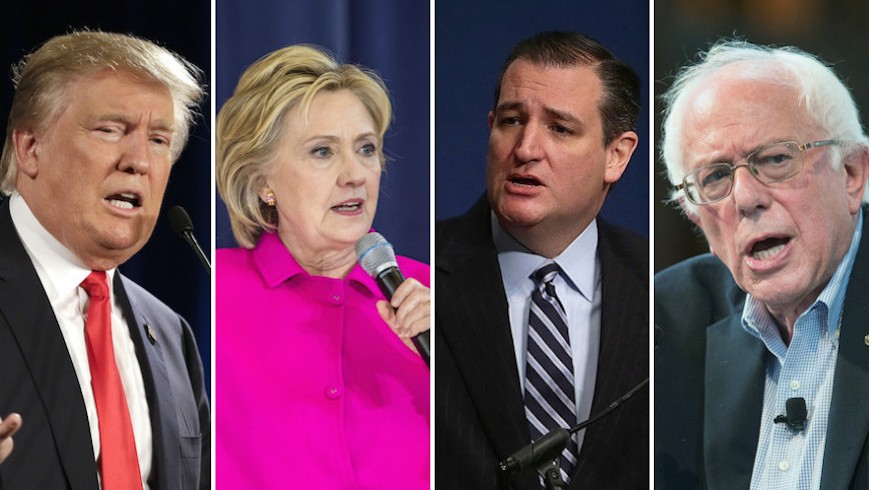Super Tuesday results
March 1, or “Super Tuesday,” marked the date when 1,460 delegates in 13 states and territories are for the 2016 Presidential race. Both Democrats and Republicans held their primaries or caucuses in Alabama, Arkansas, Georgia, Massachusetts, Minnesota, Oklahoma, Tennessee, Texas, Vermont and Virginia. Only Republicans held their caucus in Alaska, while Democrats held caucuses in Colorado and U.S. Territory American Samoa.
Although American Samoa is a U.S. Territory, they don’t have normal citizenship rights, but they do have the right to send delegates to the national convention for both parties. They will send 10 total delegates to the Democratic national convention. Six of these delegates will be picked on March 1 with the remaining four delegates being superdelegates, meaning they can vote for whichever candidate they choose. They will nominate nine delegates for the Republican convention.
From the 11 states that Republicans voted in, Republican candidate Donald Trump won seven of those states. These states were: Alabama, Arkansas, Georgia, Massachusetts, Tennessee, Vermont and Virginia. He won 247 voting delegates, earning him 458 total delegates. As of March 8, Trump had the most delegates, putting him ahead of the Republican race for the nomination.
Republican Candidate Senator Ted Cruz claimed Oklahoma, Texas and Alaska. His biggest win was in Texas, earning him 102 delegates, contributing to the 214 delegates he won that night. Cruz had a total of 359 voting delegates as of March 8, meaning he is in second place behind Trump for the 2016 Presidential Republican nomination.
Senator Marco Rubio won Minnesota, earning him 17 voting delegates. He has a total of 151 delegates after Super Tuesday, which puts him behind Cruz and Trump.
The last Republican candidate is Governor John Kasich. He didn’t win any states that night, only having 54 voting delegates total. Prior to March 5, Kasich was behind Trump, Cruz and Rubio.
As for the Democratic side, former Secretary of State Hillary Clinton and Senator Bernie Sanders are both still in the race. Democrats voted in 12 states, with Clinton winning eight states and Sanders winning four states.
Clinton won Alabama, Arkansas, Georgia, Massachusetts, Tennessee, Texas, Virginia and American Samoa. Clinton won 484 delegates total from all 12 states, adding to her total of 1,223 of regular and voting delegates recorded on March 8.
Sanders won Minnesota, Oklahoma, Vermont and Colorado, winning him a total of 370 voting delegates which gave him a grand total of 574 regular and super delegates as of March 8. This puts him behind Clinton for the nomination.
To get the nomination, the Republican candidates need at least 1,237 voting delegates while Democrats need 2,383.
After the final results of Super Tuesday, Republican Candidate Ben Carson decided to suspend his campaign. He didn’t see a political path after the Super Tuesday primaries results. Ben Carson delivered a speech on March 4, officially announcing the end of his campaign.
On March 15, The Democrats and Republicans battled for more states: Ohio, Florida, Missouri, North Carolina and Illinois. Ohio was a take-all state for Republican candidates, meaning if they won the state, they earned all of the 99 delegates possible. Total delegate count on March 15 was 358 and 691 for Democrats.
Trump won Florida, Illinois, Missouri and North Carolina. This updated his delegate count to 673. Kasich won Ohio, his home state, bringing him to 143 delegates.
Clinton won all five states. Clinton and Sanders were separated by .2% of a point, so they were both rewarded with 32 delegates. This brings Clinton’s total delegate count to 1606 Sanders’ delegate count to 851.
Rubio suspended his campaign after falling short of winning Florida, his home state, on March 15. Clinton won Alabama, Arkansas, Georgia, Massachusetts, Tennessee, Texas, Virginia and American Samoa. Clinton won 484 delegates total from all 12 states, adding to her total of 1,223 of regular and voting delegates recorded on March 8.



